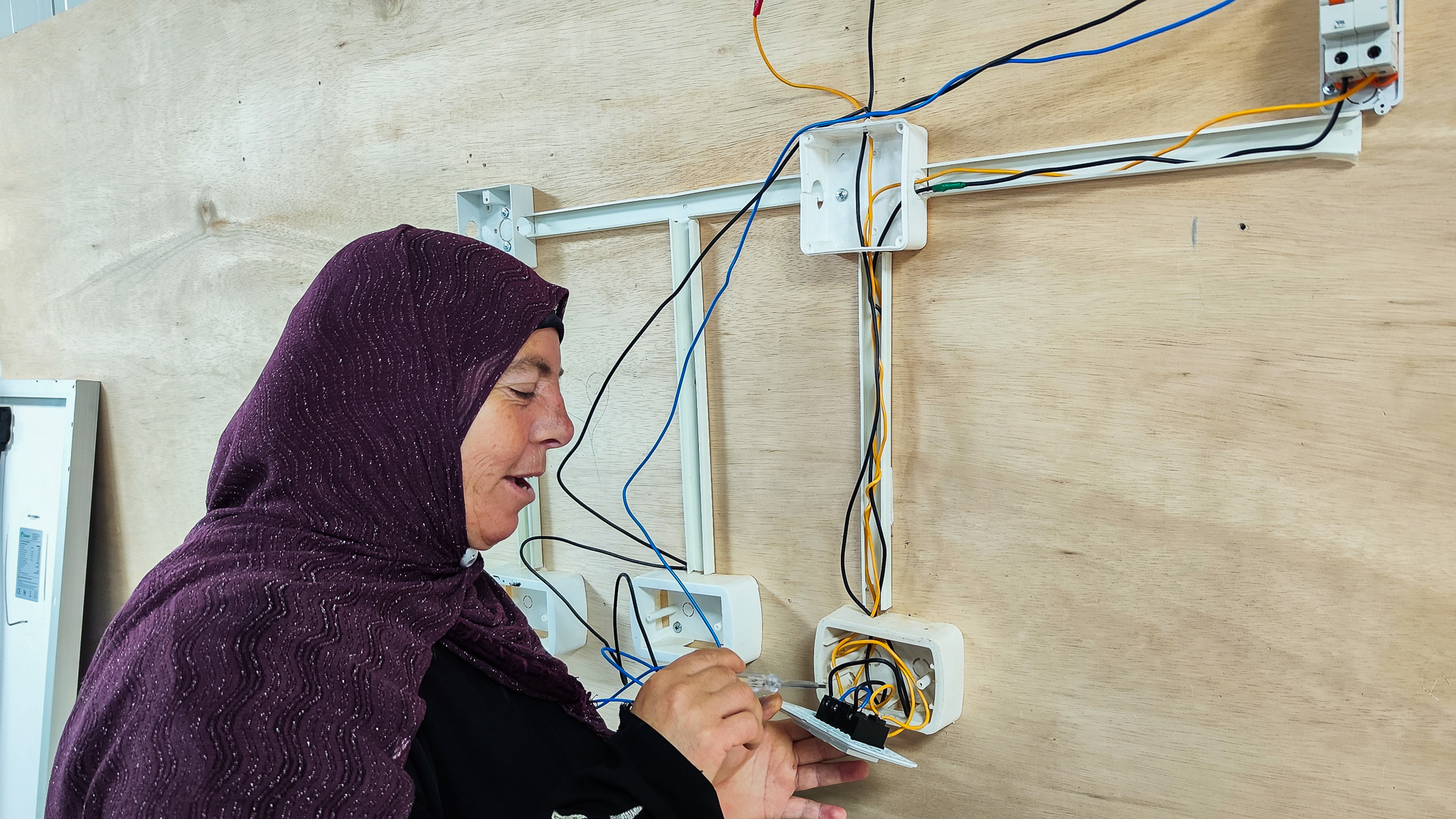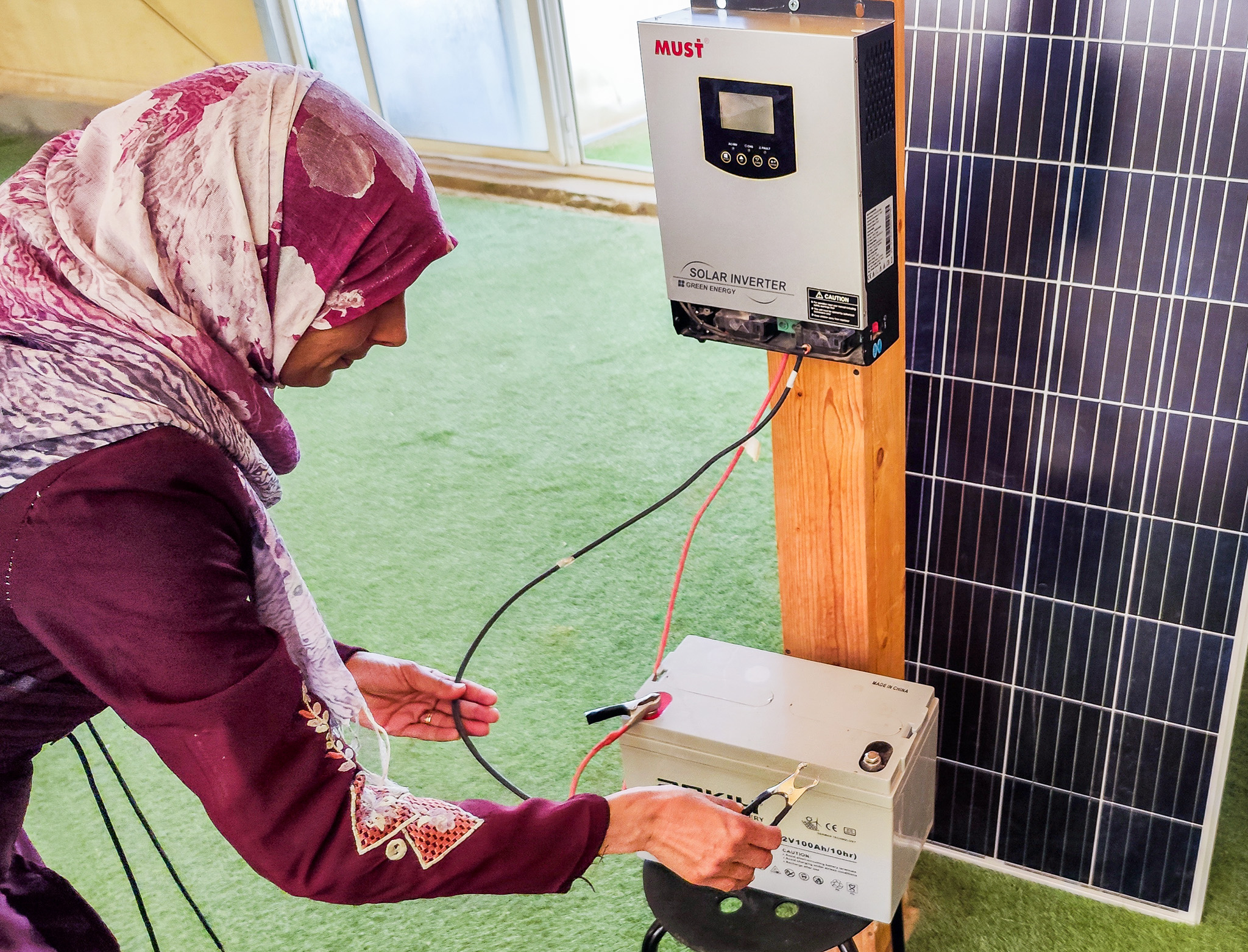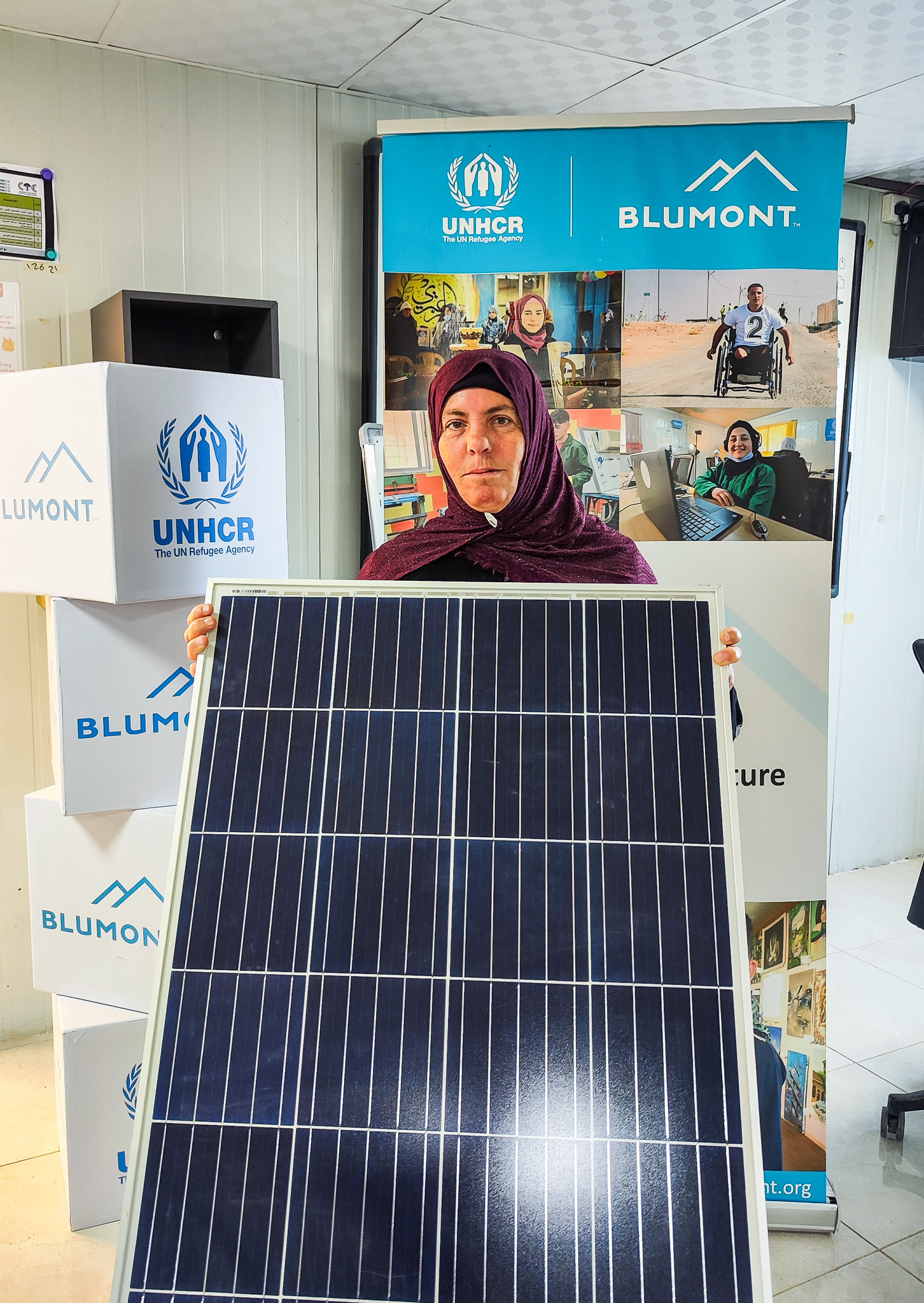Ibtisam and Eman arrived at the Za’atari Camp in Jordan in 2013 as refugees from Dara’a in southwest Syria. Both women had to end their formal education early in life (6th grade and high school, respectively), and both came to the camp with their families and a sense of uncertainty about the future.
The two women took on different jobs over the years to earn an income or contribute to their community, but always found themselves wanting to do more. Earlier this year, courses for camp residents in “Domestic Electricity and Solar Energy Systems” sparked an interest and new ideas for Ibtisam and Eman.

Ibtisam, a refugee living in Za’atari Refugee Camp, learned to repair and maintain home solar energy systems and has since made her own system more efficient and repaired her neighbor’s.
The electricity and solar course at the camp’s Innovation Lab was organized by the Innovation Committee (comprised of residents representative of the community’s gender, age, and abilities) to help people build the skills they need to maximize the effectiveness of solar power systems. Camp residents are heavily reliant on solar power to meet their daily electricity needs, but maintenance, the cost of batteries, and inefficiencies can create costly challenges.
In signing up for the course, Eman said: “My primary goal was to acquire the knowledge and skills necessary to handle electrical issues in my home independently, as I felt uncomfortable inviting an electrician over.”
Funded by UNHCR and implemented by Blumont and the Innovation Committee, the courses covered content ranging from the basics of electricity to the intricacies of solar energy systems.

Eman, who is Syrian and lives at Za’atari Refugee Camp, is interested in taking more training in solar energy maintenance after taking a course at the camp.
“Trainers facilitated hands-on learning, and this significantly enhanced my understanding in the course,” said Eman. “In the past, I was apprehensive about electricity and connections, but now I am confident in my abilities.”
Ibtisam immersed herself in learning about the components of systems and remembers when she first saw the knowledge translate into practice.
“I vividly recall the moment when I pressed the power button and saw the lightbulb illuminate,” she said. “This was an unforgettable achievement for me.”
“Currently, there are around 200 graduates from this course and new cohorts are still ongoing,” said Emran Abu Murshid, the Innovation Lab lead. “We hope the impact of this training will be reflected in the reduction of fire incidents caused by faulty electric connections inside the camp and that this will offer new job opportunities for those who completed the course.”
Since the course, Ibtisam has fine-tuned her home’s solar energy system so her family can have a reliable daily power supply. Her skills are lighting up the homes of those around her as well. Ibtisam reprogrammed her neighbor’s system, providing the family with extended power each day. Her friend is thrilled as electricity helps her complete household tasks and work with her children on educational activities.

Each family’s home at Za’atari Refugee Camp is powered with solar energy. Ibtisam is trained to fix the solar panels.
“I take pride in offering my expertise for free,” Ibtisam said. “I help people save on the expense of hiring a technician for maintenance.”
Eman hopes to continue her education in the electricity field, looking for more advanced training and further practical application.
“My aspiration is to provide guidance and advice to women in my community and establish a career in the field of electricity,” she said. “I want to challenge societal norms and customs that discourage women from pursuing certain professions.”
Ibtisam is also encouraging other women to join future workshops, both for what it can do for their households and for what it can do for themselves.
“This experience taught me that life isn’t as challenging as it may seem,” she said. “We are capable of accomplishing tasks we never thought possible.”



